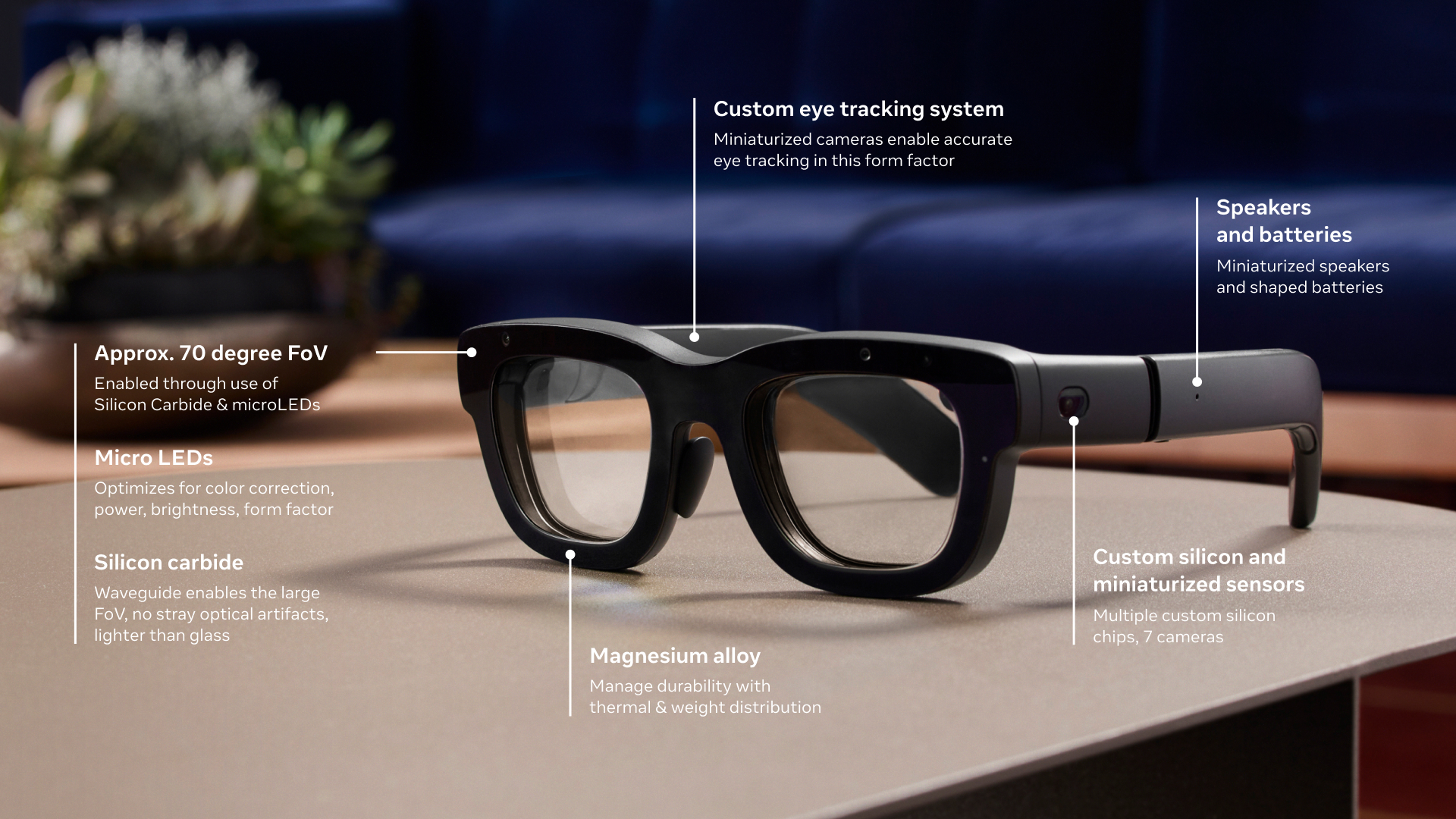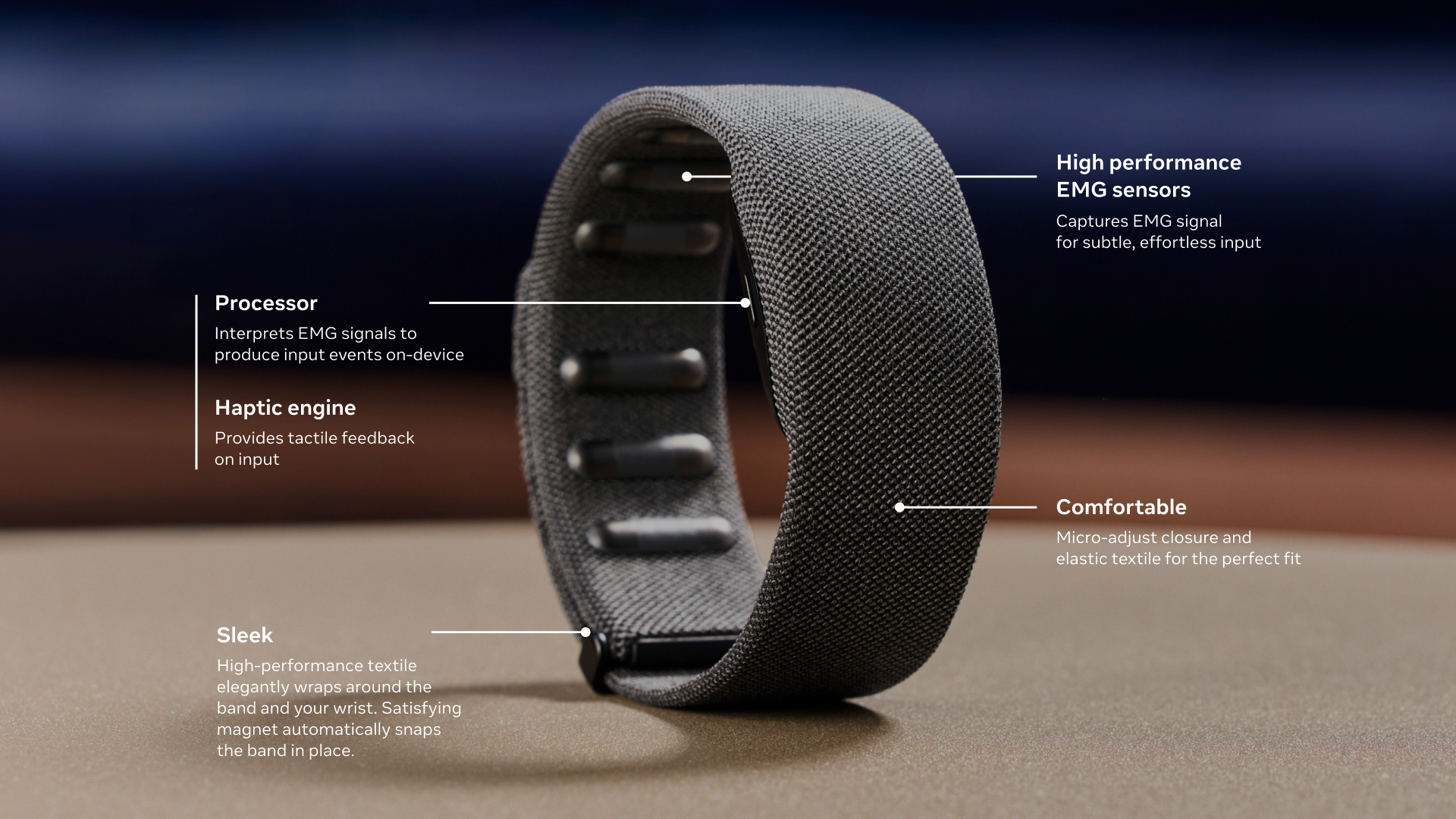Meta introduced Orion, the inaugural pair of true augmented reality (AR) glasses, previously known as Project Nazare, at the Connect conference. Previously known as Project Nazare, it’s still in the prototype stage, but the company has started to show off demos.
Orion is exactly what you’d think when you imagine AR glasses. The person wearing the glasses gets images projected onto the lens that are reminiscent of a Meta Quest 3 in passthrough mode. The Orion glasses use cutting-edge technology like silicon carbide lenses, intricate waveguides, uLED projectors, and more to create a usable prototype. While Orion is not yet ready for a release, Meta is trying to optimize the product while reducing the cost to bring it to the market soon.
The AR display in Orion has approximately 70-degree field of view, which is the largest in its class. As explained in the video introducing the prototype, the glasses needed light to bend in a way it doesn’t like to. So, instead of glass, the Orion uses silicon carbide lenses, which help the prototype manipulate light in the necessary ways to get this wide field of view. Orion also has an input system that combines voice, eye gaze, and hand tracking with an EMG wristband. This lets it track subtle gestures and looks like a regular gray wristband. They also come with a wireless compute puck that offloads some processing power and extends the battery life.
The main competitor would be the Ray-Ban Meta glasses, which Ray-Ban has already confirmed will continue production into the next decade. However, Ray-Ban Meta glasses are nowhere near as advanced as the Orion. The Orion adds images to the screen and interacts with the user. With Orion, Meta wants to push the boundaries further thanks to the holographic projections displayed on the lens. The downside is that while Ray-Ban’s glasses are sleek and wouldn’t draw attention, the Orion prototype looks particularly thick and larger than a regular pair of glasses.
Meta plans to open access to the Orion prototype to Meta employees and select external audiences for further development. This should be a real product eventually, the question is just when.
Source: Meta






